#maria-pia casilio
Explore tagged Tumblr posts
Text

#movies#polls#umberto d.#umberto d#50s movies#vittorio de sica#carlo battisti#maria pia casilio#lina gennari#elena rea#memmo carotenuto#have you seen this movie poll
39 notes
·
View notes
Text

Maria Pia Casilio
Vintage Italian postcard. Bromostampa, Milano.
20 notes
·
View notes
Text
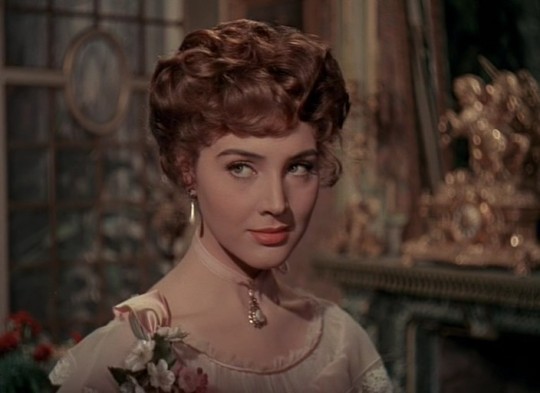
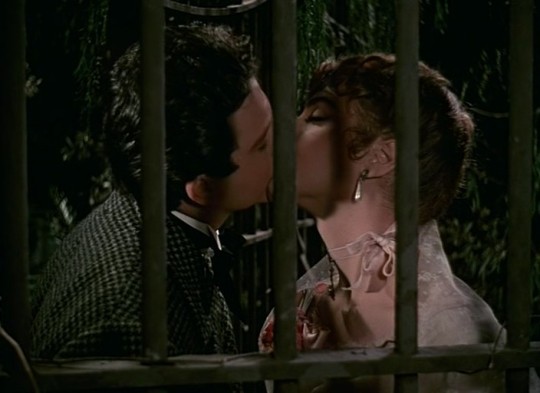

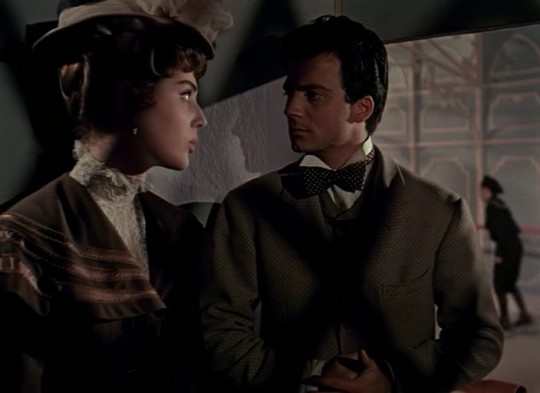




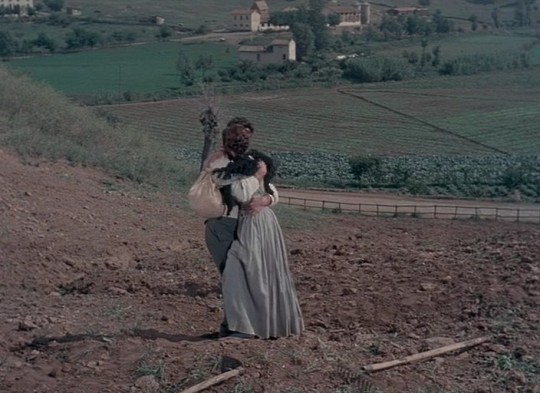
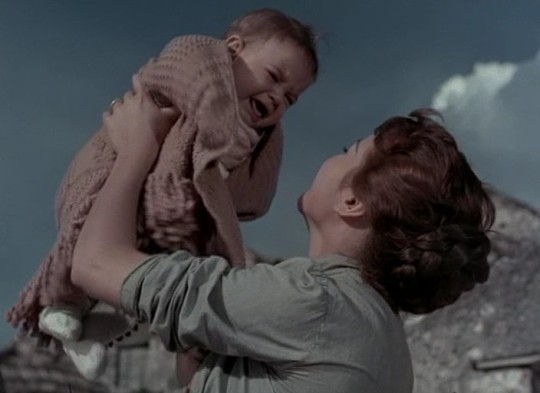


Amori di mezzo secolo (1954)
#Amori di mezzo secolo#mario chiari#pietro germi#glauco pellegrini#antonio pietrangeli#roberto rossellini#leonora ruffo#maria pia casilio#antonella lualdi#franco interlighi#1954#italian film#italian cinema#italian movies#cine italiano#cinema italiano
3 notes
·
View notes
Text
10 aprile … ricordiamo …
10 aprile … ricordiamo … #semprevivineiricordi #nomidaricordare #personaggiimportanti #perfettamentechic
2024: Paola Gassman, è stata un’attrice teatrale italiana, figlia di Vittorio Gassman e Nora Ricci e sorellastra della dott.ssa Vittoria, dell’attore Alessandro e del regista Jacopo. Paola si dedicò quasi esclusivamente al teatro, a eccezione di alcune sporadiche ma significative apparizioni televisive in commedie e sceneggiati. Negli ultimi anni con l’attore Ugo Pagliai, conosciuto ai tempi…
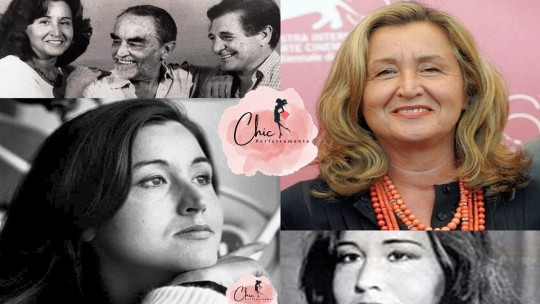
View On WordPress
#10 aprile#Carlo Sabatini#Curt Conway#Curtis Conway#Dixie Carter#Dixie Virginia Carter#Giuseppe van Lamsweerde#Henry de La Falaise#James Henry Le Bailly de La Falaise#Jean Trent#Joseph van Lamsweerde#Kay Medford#Kevin Peter Hall#Kurt Conway#Linda Darnell#Manó Kertész Kaminer#marchese de La Coudraye#Margaret Kathleen O&039;Reagan#Maria Pia Casilio#Michael Curtiz#Miska#Monetta Eloyse Darnell#Nora Barnacle#Nora Eddington#Opal Jones#Pino Van Lamsweerde
0 notes
Text

1952 yapımı film savaş sonrası İtalya'da yoksulluk ve sosyal sorunlarla boğuşan bir adam olan Umberto Domenico Ferrari'nin hikayesini anlatır. Umberto, emekli bir memur olan yaşlı bir adamdır, geçimini sağlamakta zorlanmaktadır ve sağlık sorunları yaşamaktadır.
Film, Umberto'nun toplum tarafından reddedildiği ve yalnızlığını hissettiği zorlu yaşam mücadelesini anlatır. Ancak Umberto'nun hayatta kalma mücadelesi ve sadık köpeğiyle olan bağı, seyircilere umut ve insanlık hakkında derin bir anlam sunar.
Bu ve bunun gibi daha fazla içerik görmek için sayfayı takip etmeyi unutma.
#umbertod#vittorio de sica#carlo battisti#maria pia casilio#italian movies#sinema#film önerileri#film kesitleri#sinefil#cinema#cinemetography#classic film#cult film#cinephile#cinestill#movie review#film#movie
0 notes
Text

100 Films of 1952
Film number 93: Umberto D.
Release date: January 20th, 1952.
Studio: Dear Films
Genre: Foreign/drama
Director: Vittorio De Sica
Producer: Rizzoli, De Sica, Amato
Actors: Carlo Battisti, Maria Pia Casilio, Lina Gennari, Ileana Simova
Plot Summary: Umberto is a pensioner living in poverty in Rome with his only companion, a little dog named Flicke. When his heartless landlady says she will evict him, he tries desperately to raise funds to pay back his debt. Terrified of being homeless, he sees suicide as the only way out... But what would happen to Flicke?
My Rating (out of five stars): *****
Oh my gawd! I saw this film years ago in school, and I even went out and bought the DVD because it moved me so much. I had not seen it in years, however, and I was not prepared for how deeply it hit me tonight! I need some recovery time. It’s a film filled with anxiety and despair... it’ll rip your heart out... and if you love animals, get ready to sob! The pain is ultimately worth it though, just to experience a masterpiece of Italian Neo-Realism. (Spoilers!)
The Good:
Carlo Battisti as Umberto. It is astounding to me that Battisti was not a professional actor. His face communicates so much, you would think he was a master thespian. It’s impossible not to be moved by his performance here. The close-ups of his face in the climax of the film are so haunting, I was in tears.
Maria-Pia Casilio as the maid. I loved both the character and the actress. She was the one person who treated Umberto with real humanity and empathy. She also had a very expressive face, which was highly effective emotionally.
Flicke! Flicke! The amazing dog Flicke. Flicke is one of the most moving animal portrayals in film history, and the actual dog who played him was perfect.
The use of faces. De Sica is a master when it comes to choosing interesting expressive faces and framing them in dramatic ways. Dialogue is barely needed- the eyes and the expressions on the characters' faces do all the work.
This is a simple story told without overly sappy melodrama. Like The Bicycle Thieves, this proves that focusing on a small but important moment in the life of an unremarkable person can be more emotionally stirring than any Hollywood weepie.
The film is incredibly effective at manipulating your emotions and getting you to invest in the characters.
This is a “show not tell” film in all the best ways.
The music. It unquestionably heightens the drama and emotion. It’s beautiful.
The cinematography. De Sica is extremely skilled at knowing where to place the camera. It’s not only the way he films faces, but also the framing of medium and long shots. The shot composition intensifies the mood and emotion of each scene.
The maid's story. She was a poor unmarried pregnant girl. Being pregnant and unmarried was enough of a social stigma, but she’s not even sure who the father is- two different men might be. Instead of painting her as a whore, though, both Umberto and the film itself view her in a sympathetic light. This was hugely surprising and would never fly in Hollywood at that time.
The ending. Although the final third of the movie is Umberto trying to figure out how to kill himself, the film ends on a brilliant bittersweet note. Flicke runs away from him when he tries to kill them both by standing in front of a train. To win Flicke’s trust back, Umberto begins to play with him. Suddenly we see genuine joy on Umberto’s face as he lives fully in the moment with his dog. His face lights up in a smile- at least for a few moments he finds relief from his anguish.
The relationship between Umberto and Flicke. I defy you to find a movie that portrays the bond between a pet and its owner more movingly than this! For Umberto, Flicke is literally everything- his companion, his reason for living, and the thing that brings him the most joy. Flicke is clearly just as attached to Umberto, refusing to ever leave him. Hand me another Kleenex, please!
The Bad:
Is there anything? I wish it weren’t as bleak, maybe. But that would make it less effective, I’m sure.
It makes my heart hurt and my anxiety about growing old increase! But, again, this is because the film is so damn good!
1 note
·
View note
Text
Février MMXXIII
Films
Danger : Diabolik ! (Diabolik) (1968) de Mario Bava avec John Phillip Law, Marisa Mell, Michel Piccoli, Claudio Gora, Terry-Thomas et Adolfo Celi
L'Horloger de Saint-Paul (1974) de Bertrand Tavernier avec Philippe Noiret, Jean Rochefort, Jacques Denis, Yves Afonso, Julien Bertheau et Jacques Hilling
Les Grandes Familles (1958) de Denys de La Patellière avec Jean Gabin, Jean Desailly, Pierre Brasseur, Bernard Blier, Françoise Christophe, Annie Ducaux et Louis Seigner
Les Ambitieux (The Carpetbaggers) (1964) de Edward Dmytryk avec George Peppard, Carroll Baker, Alan Ladd, Bob Cummings, Martha Hyer et Elizabeth Ashley
Bathing Beauty (1944) de George Sidney avec Red Skelton, Esther Williams, Basil Rathbone, Bill Goodwin, Jean Porter, Nana Bryant, Carlos Ramírez et Ethel Smith
Que les gros salaires lèvent le doigt ! (1982) de Denys Granier-Deferre avec Jean Poiret, Michel Piccoli, Daniel Auteuil, François Perrot, Tchéky Karyo, Nadia Barentin, François Lalande, Florence Pernel, Jeanne Lallemand et Marie Laforet
Pain, Amour et Fantaisie (Pane, amore e fantasia) (1953) de Luigi Comencini avec Vittorio De Sica, Gina Lollobrigida, Marisa Merlini, Virgilio Riento, Tina Pica et Maria-Pia Casilio
Les Ripoux (1984) de Claude Zidi avec Philippe Noiret, Thierry Lhermitte, Régine, Grace de Capitani, Julien Guiomar, Albert Simono et Claude Brosset
Scoop (2006) de Woody Allen avec Scarlett Johansson, Hugh Jackman, Woody Allen, Ian McShane, Romola Garai et Julian Glover
Sous le signe de Monte-Cristo (1968) d'André Hunebelle avec Paul Barge, Claude Jade, Anny Duperey, Pierre Brasseur, Michel Auclair, Raymond Pellegrin et Paul Le Person
Une femme sous influence (A Woman Under the Influence) (1974) de John Cassavetes avec Gena Rowlands, Peter falk, Fred Draper, Lady Rowlands, Katherine Cassavetes, Matthew Laborteaux et Matthew Cassel
L'Enquête corse (2004) d'Alain Berberian avec Christian Clavier, Jean Reno, Caterina Murino, Didier Flamand, Juliette Poissonnier, Pierre Salasca, Éric Fraticelli et Alain Maratrat
Didier (1997) d'Alain Chabat avec Jean-Pierre Bacri, Alain Chabat, Isabelle Gélinas, Lionel Abelanski, Michel Bompoil, Jean-Marie Frin, Zinedine Soualem et Elliot
Les Aventuriers de l'arche perdue (Raiders of the Lost Ark) (1981) de Steven Spielberg avec Harrison Ford, Karen Allen, Paul Freeman, Ronald Lacey, John Rhys-Davies, Denholm Elliott, Alfred Molina et Wolf Kahler
M. Hobbs prend des vacances (Mr. Hobbs Takes a Vacation) (1962) de Henry Koster avec James Stewart, Maureen O'Hara, Fabian, John Saxon, Marie Wilson et Reginald Gardiner
Mr. & Mrs. Smith (1941) d'Alfred Hitchcock avec Carole Lombard, Robert Montgomery, Gene Raymond, Jack Carson, Philip Merivale et Lucile Watson
Ulysse (Ulisse) (1954) de Mario Camerinia avec Kirk Douglas, Silvana Mangano, Anthony Quinn, Rossana Podestà, Jacques Dumesnil, Sylvie et Daniel Ivernel
Séries
Inspecteur Barnaby Saison 4, 5
Le Jardin de la mort - L'ange destructeur - Vendetta - Qui a tué Cock Robin ? - Sombre automne - Le Fruit du péché - Un village très coté - Le Ver dans le fruit - Les Sonneries de la mort - Meurtre dans un collège anglais
L'agence tous risques Saison 1, 2
Détournement - Le candidat - Un si jolie petite ville - Immigration clandestine - Poussière de diamants - Otages à l'orphelinat - Les mustangs : première partie - Les mustangs : deuxième partie - Histoire d'eau - Pression amicale - Le pain quotidien - La pêche miraculeuse - Agitateurs - Acier - La guerre des taxis - Le Scorpion du désert - Tirez sur le Cheik - Eclipse - Les marchands de poison - Dites-le avec du plomb - La vache maltaise - Pas si facile que ça
Affaires sensibles
10 mai 1981 : l’arrivée de la gauche au pouvoir - Ali contre Foreman : choc des titans à Kinshasa - Le 6 février 1973. L'incendie du collège Pailleron - Sharon Tate : l’Ange et le Démon - Voici l’histoire de Hurricane - Harlem, 21 février 1965 : Malcolm X est mort
Friends Saison 5, 6
Celui qui embrassait - Celui qui a des triplés - Celui qui accepte l'inacceptable - Celui qui rate son week-end - Celui qui a du mal à se taire - Celui qui emménage - Celui qui avait des souvenirs difficiles à avaler - Celui qui s'était fait piquer son sandwich - Celui qui avait une sœur un peu spéciale - Celui qui prenait de bonnes résolutions - Celui qui riait différemment - Celui qui avait un sac - Celui qui découvre tout - Celui qui prenait des coups - Celui qui enviait ses amis - Celui qui ne savait pas se repérer - Celui qui se sacrifiait - Celui qui ne savait pas flirter - Celui qui sauvait des vies - Celui qui jouait à la balle - Celui qui devait casser la baraque - Celui qui était à Las Vegas : 1re partie - Celui qui était à Las Vegas : 2e partie - Ceux qui revenaient de Las Vegas - Celui qui console Rachel - Celui qui était de mauvaise foi - Celui qui perdait sa belle assurance - Celui qui avait une belle bagnole - Ceux qui passaient leur dernière nuit
Coffre à Catch
#101 : Une belle petite pause dans un torrent de merde ! - #102 : Hornswoggle, Evan Bourne : le renouveau à la ECW ! - #103 : WWE Draft : la fin du Mercato d'été à la ECW ! - #104 : CM Punk et Mark Henry champions du monde !
Top Gear Saison 18, 17, 19
Spécial Journée Circuit - Made in China - Une course comme sur un green - La Vallée de la Mort - Une Lamborghini à la mer - Les pires voitures de l'histoire - Spécial Afrique : Première partie - Spécial Afrique : Deuxième partie - 1500 km à fond de 5ème
Spectacles
Un Chalet à Gstaad (2021) de Josiane Balasko avec Josiane Balasko, Armelle, Philippe Uchan, Stéphan Wojtowicz, Justine Le Pottier et George Aguilar
Livres
Friends, mes amours et cette chose terrible de Matthew Perry
Undertaker : Rise Of The Deadman de Rodrigo Lorenzo, Edu Menna, Serg Acuna et Chad Dundas
La renaissance des héros Marvel, Tome 7 : Phénix de Greg Pak, Greg Land et Kirkham
Catch : L'âge d'or, 1920-1975, l'épopée du catch français et les "Michel-Ange" du ring de Christian-Louis Eclimont
1 note
·
View note
Photo










Umberto D. is a 1952 Italian neorealist film directed by Vittorio De Sica. Most of the actors were non-professional, including Carlo Battisti who plays the title role of Umberto Domenico Ferrari, a poor elderly man in Rome who is desperately trying to keep his rented room. His landlady (Lina Gennari) is evicting him, and his only true friends, the housemaid (Maria-Pia Casilio) and his dog Flike are of no help.
The movie was included in TIME magazine's "All-TIME 100 Movies" in 2005
#dogs#vittorio de sica#Italy#1950s#carlo battisti#umberto d#dog#maria-pia casilio#europe#street photography#cute animals#architecture
91 notes
·
View notes
Photo








umberto d (it, de sica 55)
58 notes
·
View notes
Photo

Umberto D. (1952)
24 notes
·
View notes
Photo

umberto d (1952)
2 notes
·
View notes
Text
Umberto D. (Blu-ray Review)
Umberto D. (Blu-ray Review)
(more…)
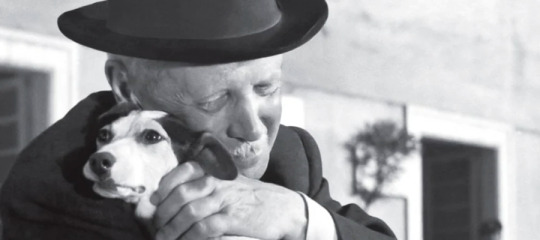
View On WordPress
#black and white#Carlo Battisti#Italian#Italy#Maria Pia Casilio#neo-realism#Neo-Realist#Neorealism#Umberto D#Vittorio De Sica
1 note
·
View note
Photo
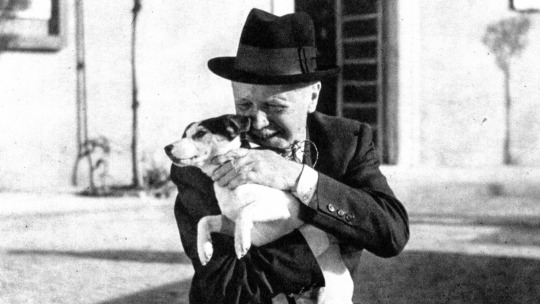
Carlo Battisti in Umberto D. (Vittorio De Sica, 1952)
Cast: Carlo Battisti, Maria Pia Casilio, Lina Gennari, Ileana Simova, Elena Rea, Memmo Caretenuto, De Silva. Screenplay: Cesare Zavattini. Cinematography: G.R. Aldo. Production design: Virgilio Marchi. Film editing: Eraldo Da Roma. Music: Alessandro Cicognini.
Umberto D. is sometimes grouped with Shoeshine (Vittorio De Sica, 1946) and Bicycle Thieves (De Sica, 1948) as the completing element in a trilogy about the underclass in postwar Rome. Shoeshine could be said to be a film about youth, Bicycle Thieves about middle age, and Umberto D. about old age. All three were directed by De Sica from screenplays by Cesare Zavattini that earned the writer Oscar nominations. Although Umberto D. is unquestionably a great film, it also seems to me the weakest of the three, largely because De Sica and Zavattini can't fully avoid the trap of sentimentality in telling a story about an old man and his dog. Umberto D. also relies too heavily on its score by Alessandro Cicognini to tug on our heartstrings. These flaws are mostly redeemed by the great sincerity of the performances, particularly by Carlo Battisti as Umberto, but also by Maria Pia Casilio as the pregnant housemaid, and Lina Gennari as Umberto's greedy landlady. Battisti, a linguistics professor who never acted before or after this film, is the perfect embodiment of the crusty Umberto Domenico Ferrari, a retired civil servant living on a pension that's inadequate to his needs. We're told that he has "debts," which include back rent to the landlady. He has no family except his dog, a small terrier called Flike, whom he dotes on, and no friends except for the housemaid, whose plight, since she's pregnant by one of two soldiers who have no intention of marrying her, is not much better than his. The film is most alive when it follows these characters on their daily rounds: the maid getting up in the morning and starting her chores, which include a continuing battle against the ants that infect the flat, and Umberto walking Flike, encountering old friends who carefully avoid noticing his plight or helping him out of it. He's too proud to beg and unwilling to go into a shelter because he would have to abandon Flike. In the end, he is forced out of the flat by the landlady, and wanders into a park where he tries to give Flike away to a little girl who has played with him there before. Her nursemaid, however, refuses to consider it -- dogs are dirty, she says. In a desperate moment, he picks up Flike, ready to stand in front of an oncoming train and die with him on the railroad tracks, but the dog panics, squirms out of his arms, and runs away. The film concludes with Umberto, having regained Flike's confidence, playing with the dog, their future still uncertain. The inconclusiveness of the final scene helps reduce the sentimentality that has flooded the sequence and focus our attention on Umberto's plight, rather than gratify our desire for closure.
2 notes
·
View notes
Photo

Umberto D. (1952). An elderly man and his dog struggle to survive on his government pension in Rome.
The tale of a man and his dog is one that has existed for basically as long as stories have, but there is something especially charming and poetic in this story of survival, loneliness and connection. The performances, cinematography and writing are all effective and compelling, but the story never quite has the emotional impact I want it to have on me. 7/10.
#umberto d#1952#Oscars 29#Nom: Story#Vittorio De Sica#Cesare Zavattini#Carlo Battisti#Maria Pia Casilio#italy#italian#health#illness#dogs#character#7/10
7 notes
·
View notes
Text
10 aprile … ricordiamo …
10 … ricordiamo … #semprevivineiricordi #nomidaricordare #personaggiimportanti #perfettamentechic
2020: Pino Van Lamsweerde, all’anagrafe Giuseppe van Lamsweerde, è stato un regista e animatore italiano naturalizzato canadese. (n. 1940) 2020: Carlo Sabatini, attore e doppiatore italiano. Noto per aver prestato voce a Ian McKellen/Magneto, ad Harvey Keitel, a Bruce Lee, a Morgan Freeman, e a tanti altri attori famosi. (n. 1932) 2012: Maria Pia Casilio, attrice italiana. (n. 1935) 2010:…
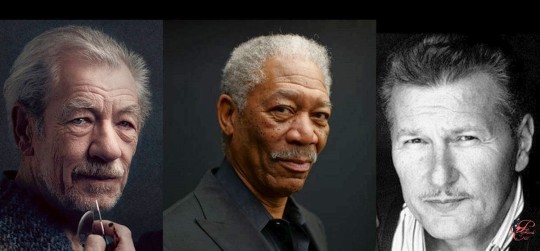
View On WordPress
#10 aprile#Carlo Sabatini#Curt Conway#Curtis Conway#Dixie Carter#Dixie Virginia Carter#Giuseppe van Lamsweerde#Henry de La Falaise#James Henry Le Bailly de La Falaise#Jean Trent#Joseph van Lamsweerde#Kay Medford#Kurt Conway#Linda Darnell#Manó Kertész Kaminer#marchese de La Coudraye#Margaret Kathleen O&039;Reagan#Maria Pia Casilio#Michael Curtiz#Miska#Monetta Eloyse Darnell#Nora Barnacle#Nora Eddington#Opal Jones#Pino Van Lamsweerde
0 notes
Photo

- Maria Pia Casilio e Alberto Sordi in una scena tratta dal film "Un americano a Roma" del 1954 diretto da Steno. Oltre all'aspetto comico, il film è una penetrante satira di costume dell'Italia del dopoguerra, evidenziando brillantemente il mito esterofilo dell'America, terra agognata e sospirata, di cui si conoscevano abiti e abitudini solo attraverso il cinema, i fumetti, le riviste. Il personaggio di Ferdinando Mericoni, detto Nando, nasce l'anno precedente dal film, sempre di Steno, “Un giorno in pretura”. Film corale, con grandi nomi del cinema italiano, che ebbe molto successo e decretò la nascita di Un americano a Roma.
⚜️
1 note
·
View note